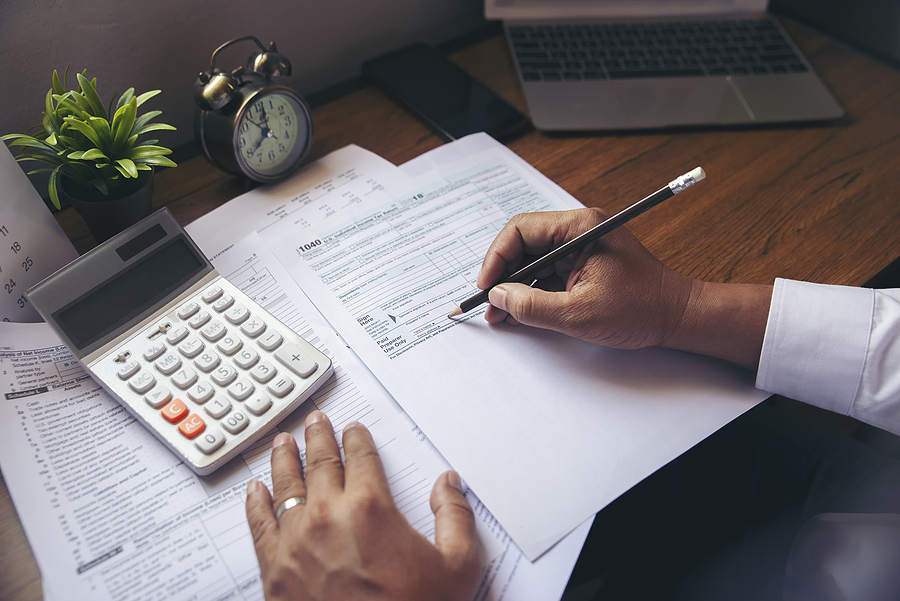Setting up a savings strategy to cover your retirement needs lays the groundwork for a peaceful and secure retirement.
This planning, however, necessitates a large number of computations. You must anticipate potential costs and identify potential income sources. As a result, you must develop investment strategies and handle related risks. The work may appear to be onerous.
Furthermore, many people are hesitant to cut back on their current lifestyle to save for retirement. You may believe that your retirement is far in the future and that you will have plenty of time to catch up. However, the earlier you begin, the easier your path to financial independence will be.
Benefits of planning retirement
Here are some of the advantages of investing in the best pension plan, to help you make the best investing decisions.
1. Preparation for unexpected expenses
Unfortunately, old age carries with it a slew of health issues. And medical bills can be exorbitant. According to a recent government poll, India’s average retail healthcare inflation is 7.14 per cent. At this pace, the expense of basic healthcare may become prohibitively expensive by the time you retire. However, illnesses frequently strike without warning.
Furthermore, life might throw you a curveball when you least expect it, resulting in unexpected bills.
As a result, it is preferable to plan for such costs when you are healthy and earning. In addition, some of the best pension plans allow you to borrow or withdraw assets in an emergency. As a result, when the time comes, you won’t have any problem paying your payments.
2. Cost-saving
Planning for retirement at an early age can help you save money. In an insurance policy, for example, the premium amount to be paid is lower when the insured is younger. While acquiring insurance during retirement might be expensive.
3. Tax benefits
The best pension plans give several tax advantages:
- Contributions to best pension plans can be deducted from taxable income, lowering your taxes.
- Some of the best pension plans distributions are also tax-free or only partially taxed.
Furthermore, tax diversification is the best way to save money on taxes. It entails putting your money in various taxable, tax-deferred, or tax-free accounts. You can then supplement your retirement income from a variety of sources.
Tax regulations, like investing conditions, may change in the future. You might not know what tax bracket you’ll be in after retirement. As a result, it is best to diversify your investments across several account types.
You may wind up paying more tax for the same withdrawal amount than another person with a diverse pool of revenues if you just have one tax-deferred account.
4. Peace of mind
When you prepare for retirement, you consider every possible circumstance that might result in spending. You comb through your present resources, find gaps, and try to accumulate the necessary dollars. A methodical technique like this assures a healthy nest egg, providing you with financial stability even when your regular income ceases.
And you feel relieved when you know you’re taking the appropriate steps to avoid financial problems later in life. You can figure out how much you can save for retirement by using a pension plan calculator.
After all those years of hard labour, you may finally relax and enjoy life. It not only eliminates difficulties in your retirement years, but it also eliminates stress in the years preceding them.
5. Inflation beating returns
Investing in retirement will allow you to generate profits that outperform inflation. Saving money in a bank savings account will not yield a high rate of return. In other words, the interest earned will not be sufficient to provide a comfortable retirement.
As a result, the best pension plans will enable one to create considerable long-term returns. It is also critical to begin investing early. This helps to smooth out the effects of market volatility.
6. Money works for you
Everyone used to rush from their 9 to 5 jobs. Everyone works to earn money and make a decent living. Retirement, on the other hand, refers to the point at which a person is no longer able to work. As a result, this is the moment when the money generated should do all of the jobs. To do this, one must begin investing for retirement at an early age.
Starting modestly also aids in the generation of large future profits. As a result, a retirement fund should be a well-diversified portfolio capable of generating returns after retirement.

How to plan your retirement?
One must begin planning for retirement as soon as one begins working. Starting a retirement fund early in life will aid in the accumulation of a substantial corpus.
Furthermore, it lessens the strain on individuals as they approach retirement age. However, planning for retirement by choosing the best pension plans in the early stages of life, when financial obligations are limited, reduces the pressure of investing for it later.
Retirement planning with the best pension plans isn’t rocket science. All that is required is to follow the instructions outlined below:
1. Determine the investment horizon
To calculate their investing horizon, one must first select when they wish to retire. Then figure out how many years you have before retirement. This is the investor’s investable age or investment horizon. Investors must also decide how long they intend to keep the expenditures.
2. Estimate the expenses
The following step is to calculate the current costs. They must establish what are the recurring expenditures that the investor must pay. This does not have to include kid education costs or EMIs, as the investor may not have to pay them after retirement.
3. Start investing early
Investing in the early phases of life not only aids in the accumulation of a large corpus. However, it also lessens the financial strain of depositing a lump sum amount in the creation of a retirement fund.
Investing at a young age buys more time for one’s assets, increasing the benefit of compounding on one’s investments. They can also invest little sums monthly to accomplish their goal amount.
4. Don’t use retirement funds
One common blunder is that individuals spend the money they have set up for retirement. Investors should not use their retirement funds for their children’s schooling, marriage, or any other purpose. Instead, investors might make a list of their life objectives and set aside some money each month to work toward them. Each financial aim will so have its corpus.
Wrapping It Up
Retirement planning is an important component of financial planning. The necessity for retirement planning grows as average life expectancy rises. The best pension plans not only assures an additional source of income but also aids in coping with medical problems, accomplishing life goals, and being financially independent.
You never know what may go wrong in the future. However, with appropriate planning, you can control your financial security. However, to preserve your funds, you need to pick your retirement investments with caution. Only the best pension plans providers with solid financial ratings should be trusted.
Image Source: BigStockPhoto.com (Licensed)
Site Disclaimer
The Content in this post and on this site is for informational and entertainment purposes only. You should not construe any such information or other material as legal, tax, investment, financial, or other advice. Nothing contained on our Site constitutes a solicitation, recommendation, endorsement, or offer by HII or any third party service provider to buy or sell any securities or other financial instruments.
Nothing in this post or on this site constitutes professional and/or financial advice. You alone assume the sole responsibility of evaluating the merits and risks associated with the use of any information or other content in this post or on this site.
You recognize that when making investments, an investor may get back less than the amount invested. Information on past performance, where given, is not necessarily a guide to future performance.
Related Categories: Invest







